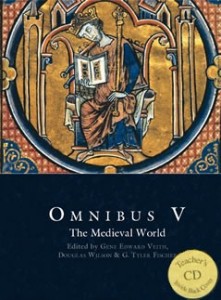Occasionally, I bump into a quote that won’t leave me alone. In Omnibus 5, tucked in between deep thoughts about Augustine’s The City of God, was this one:
Our culture encourages us to feed our desires and not to learn how to control them. There are many instances of this in popular culture. Films like The Bridges of Madison County and The English Patient suggest that the Christian view of marriage represses our deepest desires. In this way, they suggest that there is deep and profound happiness to be found in lust—in allowing the flesh, which lusts against the spirit, to find its satisfaction even if such satisfaction involves fornication or adultery. We can also see this idea of feeding our carnal or fallen desires in revenge movies (which encourage us to find satisfaction by our rage being satiated), in teenage coming-of-age movies (which encourage teens to indulge and feed the overly dramatic quality of their adolescence), and in horror films (which exist primarily to excite us by the fascination of evil). From Omnibus 5, p 27.
I love it when someone else puts my thoughts into words!
Omnibus, put out by Veritas Press, is a 6-year classical, Christian study guide to Bible, literature, and history that we love (although with some serious reservations). I’ve posted some thoughts about Omnibus but am not yet ready to write a proper review of any of the years. But, of course, eventually I won’t be able to resist!
This post is linked to Trivium Tuesdays and Encourage One Another Wednesday.


My husband and I just watched a movie from the 50’s where the woman leaves her husband for another man. The new man asked, “Don’t you love your husband?” And she answers, “Yes, but there’s a difference between loving and being in love.” (The obvious Hollywood message being that the feeling of love is more important than the choice to love.) ICKY! The latter lasts through the storms, the other dissipates like mist when hardships come.
That is a memorable quote and worthy of much thought. I can think of many examples of books encouraging children and adults to feed their desires as well. That’s what makes the classic books, such as Augustine’s City of God, so important to read. They remind us of what is truly important.
Wonderful thoughts! I’ve got my eye on the Omnibus, but I’m afraid I have many many years before we will get to it =) I’ll look forward to reading your review one of these years!